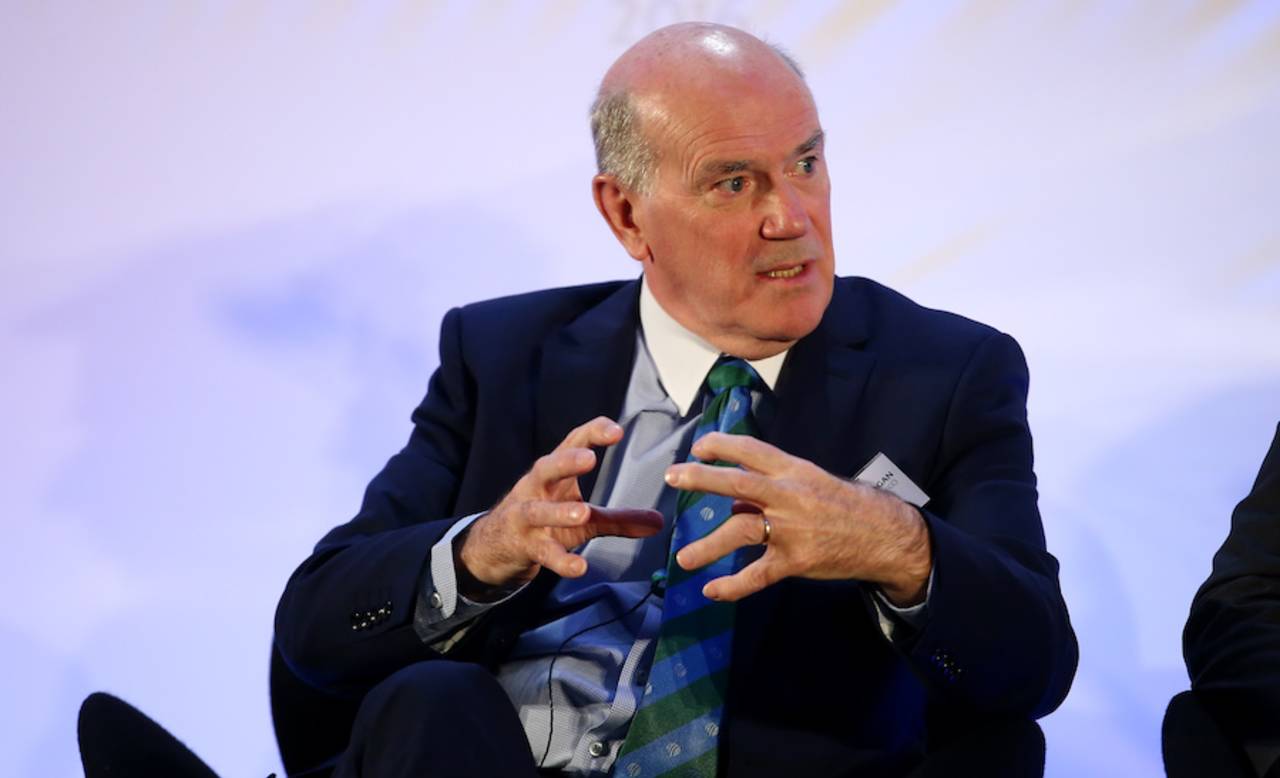Suspected match-fixers will be forced to hand over mobile phones and electronic devices under new plans to curb corruption. The ICC's Anti-Corruption Unit would gain the powers to download personal messages, including through WhatsApp and Snapchat, under proposals that could be agreed by the ICC early next year.
"As the world changes and as people use different means of communicating with each other through social media - Whatsapp, Snapchat, all of these things - we have to keep ahead of these things," said Ronnie Flanagan, the head of the ACU. "One extension [of ACU powers] we might seek is that, instead of just asking for a player's billing records, might we actually, like tennis, seek the ability to take the devices and download them to see what communications had been made upon them."
The increased powers would mirror those of the Tennis Integrity Unit, who monitor suspicious activity across men's and women's tennis. The ACU currently has the authority to request information from players being investigated, including mobile phone records.
It is understood that the ACU has already had some informal conversations with members of the ICC Board, attempting to win support for the increased powers. If the board approves, it is likely there would then be a consultation with the Federation of International Cricketers' Associations, and the three Test countries - India, Pakistan and Zimbabwe - not represented by FICA. The proposals would then be voted by the ICC Board at a quarterly meeting - most likely in February or April next year.
The ICC is also investigating other ways to curb corruption. The ACU is consulting experts about how to use the deep web (parts of the web not indexed by search engines) and the dark web (parts of the web that require specific software or authorisation) to find evidence of corruption.
"In order to thwart the intentions of corruptors, we are constantly exploring how they attempt to communicate with players, including the use of various social media networks, and indeed including what some describe as the dark web or the deep web," said Flanagan.
In the United Kingdom, the ACU is close to finalising a memorandum of understanding to share information with the National Crime Agency, which will make it easier to identify suspicious activity.
Flanagan also emphasised the need for cricket to work with other sports against corruption. "These corruptors do not consign themselves to one sport. They are interested in any game."
The recent news that Alviro Petersen has been charged with
six anti-corruption offences by Cricket South Africa highlights cricket's continuing struggle against corruption.
"I think there is no ground for complacency whatsoever," Flanagan said. "These corruptors have demonstrated ingenuity and demonstrated determination to keep trying to get at players and match officials who are bound by our code of conduct. Therefore we must be continually active in thwarting their intentions and we must do that by making the very best use, not just of international resources involved in anti-corruption, but also of the domestic resources involved in anti-corruption. And making sure we co-ordinate our efforts and share that effort across cricket, wherever it is played and at whatever levels it is played."
The ACU has redoubled attempts to convince players of the need to come forward with evidence after Chris Cairns was
acquitted in London last year. Since the end of that case, the ACU has worked "a) to remind them of their continuing obligation to report suspected approaches to them but b) to reassure them that we will treat them sensitively and look after their interests when they come forward, to discharge the responsibilities that code of conduct places upon them," Flanagan said.
Flanagan believes that working closely with gambling companies is an important tool for the ACU, although this was not possible in countries - notably India - in which gambling is illegal.
"We have a very good relationship with the legitimate betting industry, so if there are artificial spikes [in betting odds] we are made aware of them very quickly - or, alternatively, if we have intelligence that a given game might be susceptible, then we can do something about that proactively and monitor when it is happening.
"We do have the problem in cricket of the black-market gambling industry, largely in the Indian sub-continent. We are taking strides to try and penetrate that more and more but it is not easy. But equally we cannot assume that, because the legitimate betting market is heavily regulated, that it is not problematic and that problems can't arise there. Of course they can."
Flanagan also defended the powers the ACU were granted by the ICC. "There has never been any question of me being denied resources required to deal with the problem," he said. "People often suggest we should do more things which would tend to make us more like a police force, with the powers the police force has. We're not a police force, we don't have the powers of a police force, and we don't seek the powers of a police force. We have only the powers vested in us that the international board gives us. They give us those powers after consultation with the players and I think that's absolutely right."
A review of the ACU's work was presented to the ICC board last year. It identified the need for the ACU to adapt to deal with 'softer targets' - including domestic games, and Associate and women's matches - and for domestic boards to collaborate more with each other.
Tim Wigmore is a freelance journalist and author of Second XI: Cricket in its Outposts
